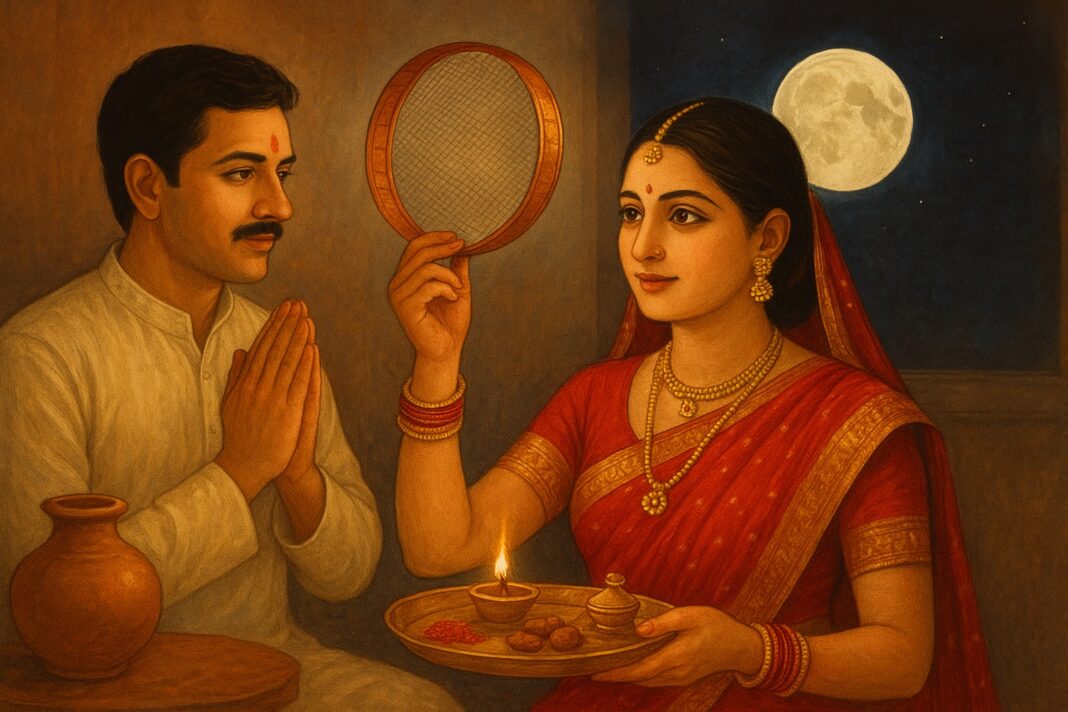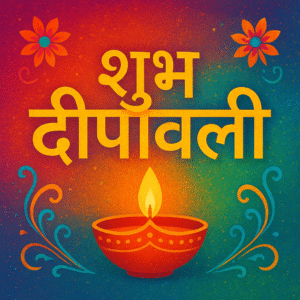Karwa Chauth is a cherished Hindu festival celebrated by married women across India, especially in the northern regions. Observed with deep devotion, this fast symbolizes love, longevity, and commitment in marriage. Women abstain from food and water from sunrise to moonrise, praying for their husband’s well-being. To honor the spiritual and cultural significance of this day, it’s important to follow certain traditional rules that enhance the sanctity of the fast. This guide outlines eight essential practices that help maintain the purity and emotional depth of Karwa Chauth, making the celebration more meaningful and memorable for every participant.
Begin with a Pre-Dawn Sargi Meal
The fast begins with a pre-dawn meal called Sargi, traditionally prepared by the mother-in-law. It includes fruits, sweets, dry fruits, and light snacks that provide energy throughout the day. Consuming Sargi before sunrise is crucial, as no food or water is allowed after that. Women should eat mindfully and hydrate well the night before. Preparing Sargi with love and care strengthens family bonds and sets a positive tone for the day. It’s not just a meal-it’s a blessing and emotional gesture that connects generations and prepares the body for the day-long fast.
Observe a Strict Waterless Fast
Karwa Chauth is a nirjala fast, meaning no food or water is consumed until moonrise. This requires physical and mental discipline. Women should avoid strenuous activities and stay calm throughout the day. If health conditions prevent a complete fast, consult a doctor and adapt accordingly. The essence lies in devotion and intention. Keeping the fast with sincerity enhances its spiritual impact. Staying engaged in light activities, prayers, and rituals helps divert attention from hunger and thirst. This rule reflects the strength and dedication of women and adds depth to the tradition.
Maintain Positive Thoughts and Calm Behavior
Karwa Chauth is not just about physical fasting-it’s also about emotional and mental purity. Avoid anger, gossip, or negative thoughts during the day. Engage in spiritual activities like chanting, meditation, or listening to devotional music. Maintaining a peaceful mindset helps you stay focused and connected to the purpose of the fast. It’s a day to reflect on love, gratitude, and inner strength. Calm behavior also creates a harmonious environment at home, allowing the family to support and participate in the celebration with joy and respect.
Prepare a Complete and Clean Puja Setup
The evening puja is the heart of Karwa Chauth. Prepare a clean space with all essential items: Karwa (earthen pot), diya (lamp), sieve, water vessel, sweets, sindoor, bangles, and a decorated thali. Cleanliness and completeness of the setup are vital. Arrange everything in advance to avoid last-minute stress. Use traditional fabrics and flowers to enhance the spiritual ambiance. A well-prepared puja setup reflects devotion and respect for the ritual. It also helps maintain focus during the ceremony and ensures that every step is performed with care and reverence.
Listen to the Karwa Chauth Story During Puja
During the evening puja, it’s customary to listen to the Karwa Chauth katha (story). This tale narrates the significance of the fast and the devotion of women who observed it. Listening to the story reinforces the values of love, sacrifice, and faith. Whether in a group or individually, make sure to include this step in your ritual. You can read from a printed booklet or listen to an audio version. The story adds emotional depth to the ceremony and connects you to generations of women who have upheld this tradition.
Break the Fast Only After Moonrise Rituals
The fast is broken only after sighting the moon and performing the moon-viewing ritual. Women use a sieve to look at the moon and then at their husband’s face, symbolizing love and blessings. Offer water to the moon and pray for your partner’s longevity. After the ritual, break the fast with light, nourishing food. Avoid heavy or oily meals to prevent discomfort. This moment is deeply emotional and symbolic, marking the culmination of devotion and endurance. It’s a beautiful tradition that strengthens marital bonds and celebrates togetherness.
Exchange Gifts and Express Gratitude
Gift-giving is a cherished part of Karwa Chauth. Husbands often surprise their wives with thoughtful presents, expressing love and appreciation. Gifts don’t have to be expensive-flowers, handwritten notes, or personalized items carry deep emotional value. Wives can also prepare small gestures for their partners. This exchange fosters mutual respect and affection. It’s a reminder that relationships thrive on care and acknowledgment. Celebrating with gifts adds joy to the occasion and creates lasting memories that go beyond the rituals.
Rest and Rehydrate After the Fast
After a long day of fasting, it’s important to rest and rehydrate. Start with lukewarm water or herbal drinks to soothe the body. Eat light, balanced meals that are easy to digest. Avoid overeating or consuming spicy foods. Resting helps the body recover and allows you to reflect on the day’s experience. Spend time with family, share stories, and enjoy the peaceful end to a spiritually rich day. This final step ensures that the fast concludes with care and comfort, honoring both tradition and well-being.
Disclaimer: The articles, videos, and news published and shared on Theconnect24.com covering topics such as religion, astrology, health, yoga, history, mythology, and others are intended solely for general informational purposes. These materials are sourced from various references, and Theconnect24.com does not guarantee or verify their accuracy, completeness, or authenticity. Viewers are strongly advised to seek guidance from qualified experts or specialists before practicing, following, or experimenting with any information related to astrology, health, or similar subjects. This content is presented purely for the interest of viewers and does not carry any scientific validation or evidence.



